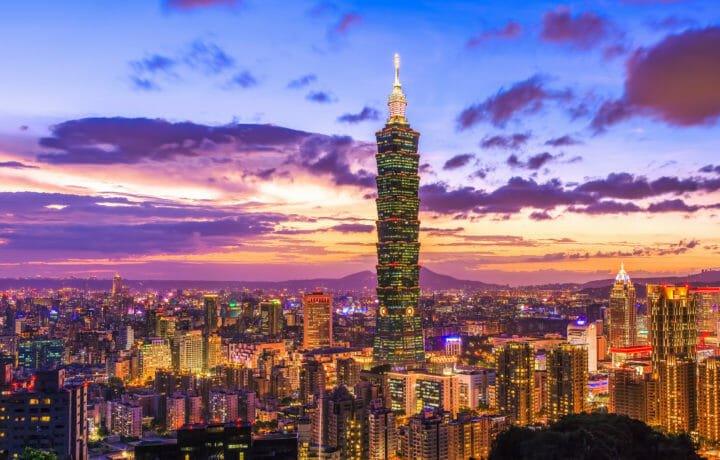Due to the “One China policy” of 1972 – referring to the policy of “strategic ambiguity” regarding Taiwan or the Republic of China (ROC) – the United States and most United Nations (UN) member states do not discuss the political status for fear of souring diplomatic ties with China. Taiwan was recognized as a country by the UN from 1949 to 1971. Today, the UN classifies Taiwan as a territory, due to prickly politics with China. Only 13 countries recognize Taiwan, and the U.S. is not one of them.
Today, with American dependency and Chinese claims to the island, the area remains extremely volatile. Taiwan produces over 60% of the world’s semiconductors and over 90% of the most advanced ones, with the industry making up 15% of the country’s GDP. Washington’s foreign policy has vacillated on its promise of defending Taiwan for over 50 years.
Washington continues the confusing foreign policy by U.S. Stated Department posting on their website, “Taiwan is a key U.S. partner in the Indo-Pacific. Though the United States does not have diplomatic relations with Taiwan, we have a robust unofficial relationship.” Last September, U.S. President Joe Biden explicated stated U.S forces would defend Taiwan in the event of a Chinese invasion, drawing an angry response from China.
If the U.S. moves to defend Taiwan, who will assist? The short list of countries that recognize Taiwan includes military power houses such as Belize, Guatemala, Haiti, some of the Virgin Islands, and the Vatican. The question remains, can we count on 13 countries for their political or military support?
Perhaps Japan
With the elevated tensions in recent years, American and Japanese military officials have been working on plans – but avoiding the question of “Will Japan join the fight?” Evidently Washington has asked Tokyo to contemplate roles such as Chinese submarine hunting around the waters of Taiwan. However, this discussion may be a moot point.
Since 1972, Japan does not recognized ROC as the sole official government of Taiwan and official diplomatic relations do not exist. However, Japan is just 70 miles from Taiwan, and any attack by the Chinese may likely encroach on Japanese territory. Last August, the Chinese People’s Liberation Army (PLA) launched “precision missile strikes” around Taiwan. Five of the missiles landed in Japan’s Exclusive Economic Zone. Afterword’s, the PLA confidently announced, “all missiles hit the target accurately.”
Japan hosts more than 50,000 U.S. troops, mostly on the island of Okinawa, less than 500 miles from Taiwan. Should China invade Taiwan and the U.S. intervene, these troops would support the conflict. According to a 1960 agreement, the U.S. requires “prior consultation” with Japan before allowing U.S. Forces in Japan to deploy for regional combat. However, it would be difficult for Japan to deny the U.S. deployment as refusing would jeopardize the alliance that ensures Japanese security. Further, U.S. Forces in Japan would easily become a target of Chinese attacks, endanger Japan.
Whether a direct target or simply being in the crossfire, a Taiwanese invasion will inevitably threaten Japan. However, Japan would have a difficult time directly engaging China, as leadership knows the public wants no part of a conflict. One official from Keio University in Tokyo stated that 90% of the Japanese public would say ‘no’ to assisting Taiwan.
Japan’s Constitution, constructed by the U.S. after World War II, renounces the use of force. As such, Tokyo is officially investing in weaponry such as long-range cruise missiles and other hardware in response to China’s growing arsenal, strictly for military deterrence.
However, a new law approved in 2015, states Japan can respond militarily if a close ally is under attack nearby and its own survival is at stake.
What about Australia?
A simulations exercise by a Washington think tank, found the U.S. could likely block a Chinese takeover of Taiwan with the support of allies such as Japan and Australia. Last month, an Australian public opinion poll supported responding to a Chinese attack on Taiwan with economic sanctions, arms supply, or using the Navy to prevent a blockade. However, the Australian public would not support sending troops.
The U.S. continues to seek more clarity from Japan and Australia, as the policy of “strategic ambiguity” continues, and the situation becomes more complex with ever increasing stakes.




